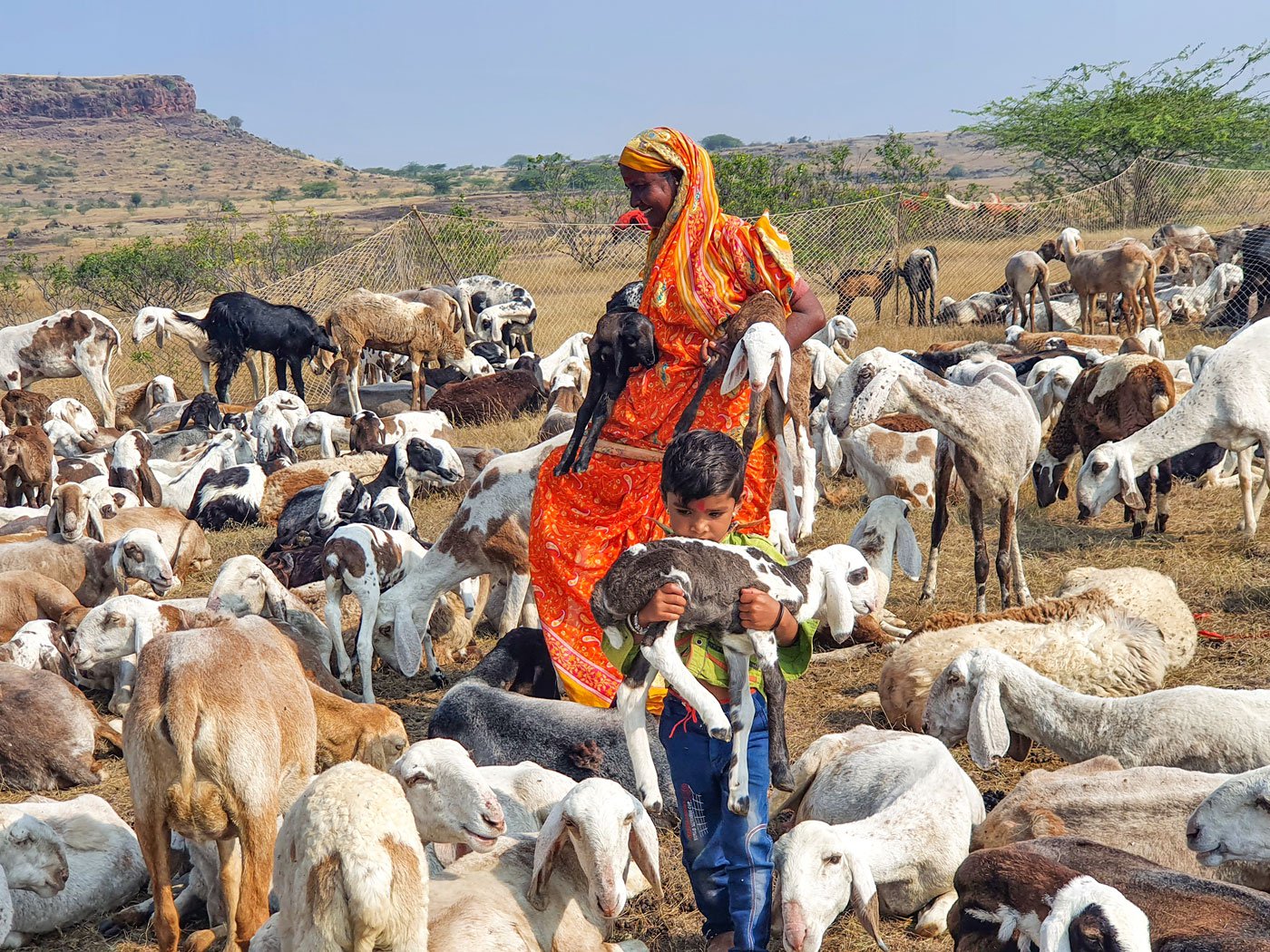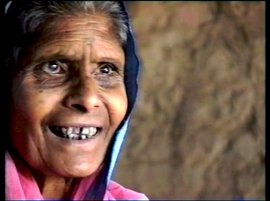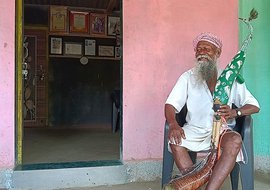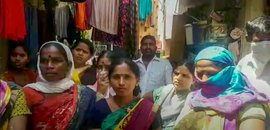In just one night, Taibai Ghule estimates she lost an income of one lakh rupees.
The 42-year-old was in Bhalawani, nine kilometres from her village when a heavy downpour began. “It started raining at five in the evening and increased after midnight,” the sheep and goat herder said. The freshly ploughed field was soon wet and muddy, and her flock of roughly 200 animals were finding it difficult to move around in the sticky mud.
“We sat in the mud [all night] and were drenched in that deluge with our animals,” she said, recalling the heavy rains of December 2021 in Ahmadnagar (also spelt Ahmednagar) district of Maharashtra.
“We have seen heavy rain, but we have not suffered such losses. This is the first time,” says Taibai, a shepherd from Dhavalpuri village who lost eight sheep and a female goat. “All we wanted was to save them.”
The rain was particularly heavy in Satara with close to 100 mm rainfall recorded on December 2, 2021, in most of its talukas .
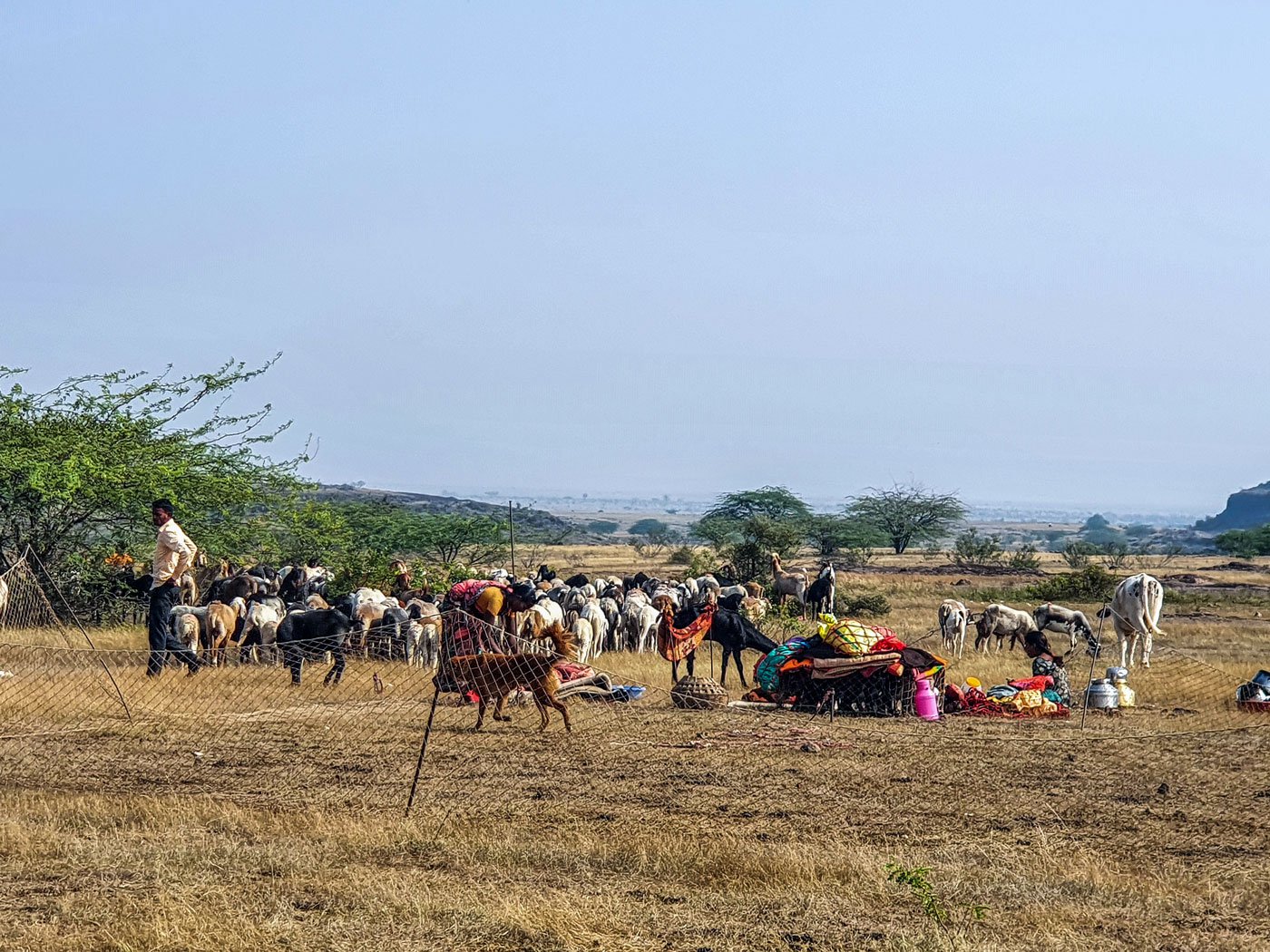
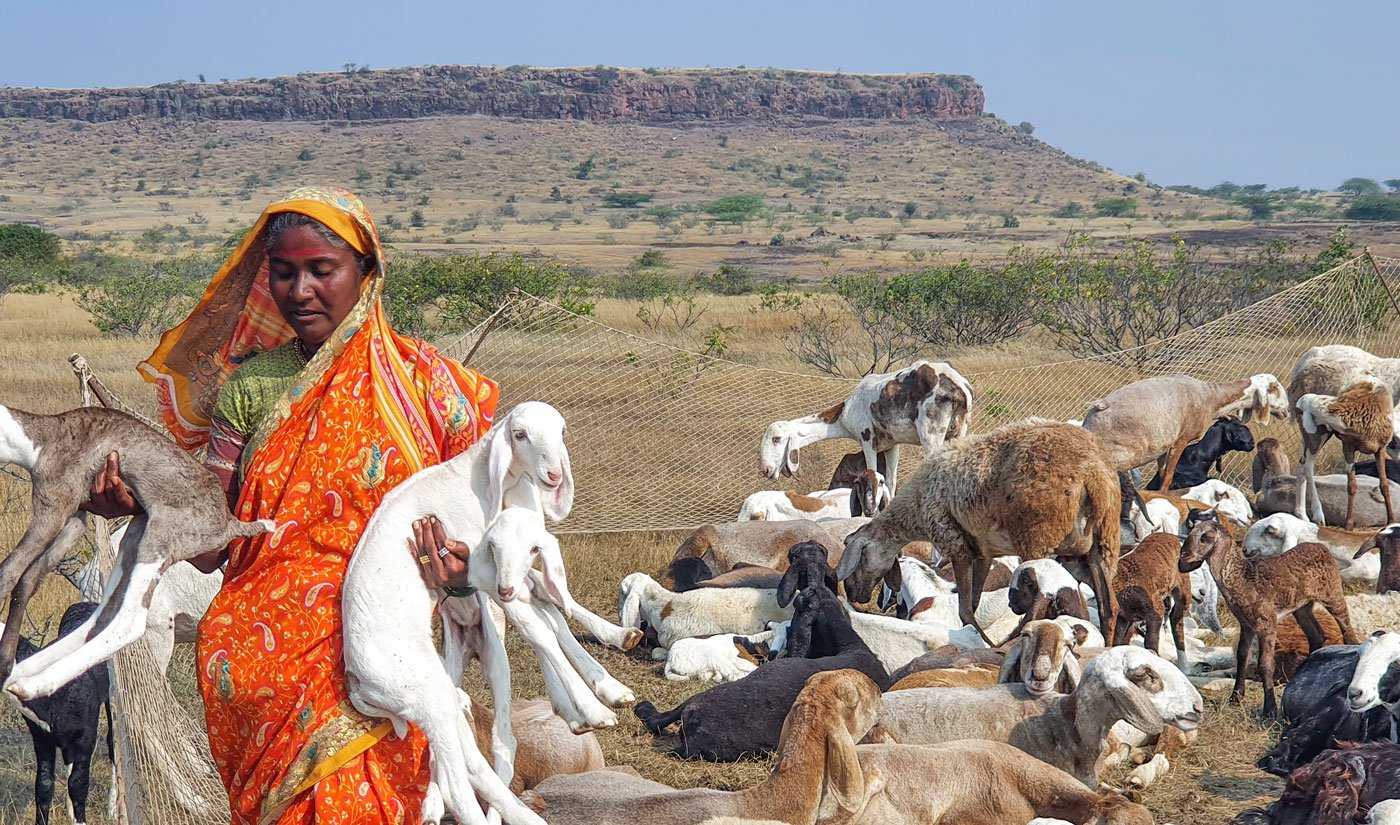
The grazing ground of Bhandgaon village in Pune, Maharashtra (left) where Dhangar pastoralist Taibai Ghule comes often to graze her sheep and goats. Herders like her stay on the road for six months, returning only after the onset of the monsoon as the small animals cannot withstand the Konkan region’s heavy rains
“The rain was so much that we could not think of anything. Some sheep died later as they could not bear the cold,” says Gangaram Dhebe, a 40-year-old shepherd also from Dhavalpuri. “They had lost all strength.”
He was 13 kms away in Bhandgaon when the rain started. Of his 200 animals, Gangaram lost 13 that night: seven full-grown sheep, five kids and one female goat. He spent Rs. 5,000 on medicines and injections from local chemists on the sick animals, but nothing worked.
Taibai and Gangaram Dhebe belong to the Dhangar community, listed as a Nomadic Tribe in Maharashtra. They live largely in and around Ahmadnagar district which has a large population of sheep.
In summer, when water and fodder become scarce, herders like Taibai migrate to Dahanu and Bhiwandi in Palghar and Thane district of north Konkan region. They stay on the road for six months, returning only after the onset of the monsoon; the small animals cannot withstand the Konkan region’s heavy rains.
“We really don’t know how it rained like this,” she says. “He [the rain] is the Meghraja [king of the clouds].”
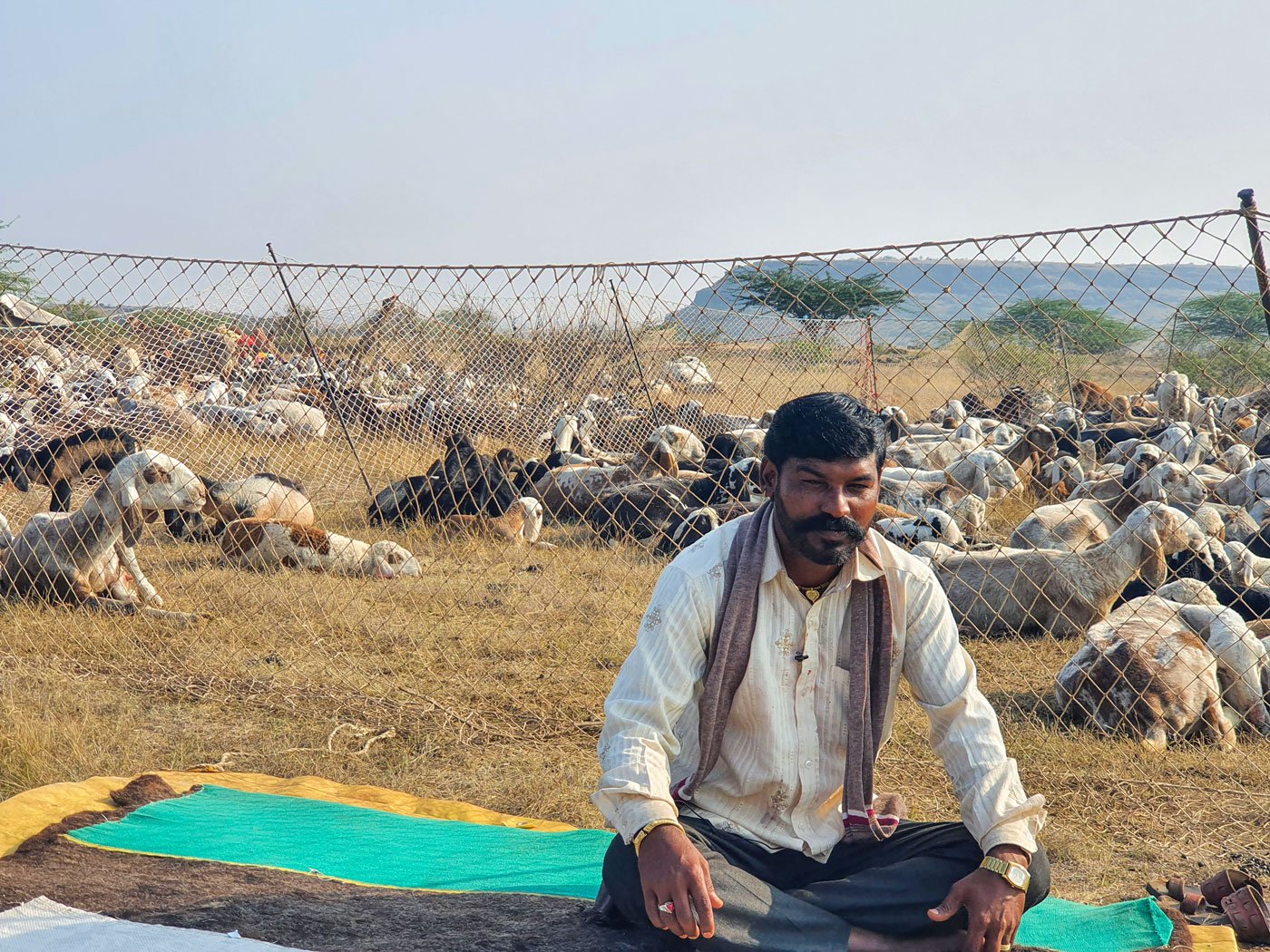
Shepherd Gangaram Dhebe lost 13 animals to heavy rains on the night of December 1, 2021. 'We have no shelter,' he says
The herder’s eyes well up as she recalls the event: “We have borne a huge loss, quite huge. If we find some other occupation, we will leave this.”
Tukaram Kokare lost nine full-grown sheep and four lambs from his herd of 90. He too says, “It was a huge loss.” He says it costs Rs. 12,000 to 13,000 to buy one sheep. “We have lost nine. So, you can imagine how much loss we have suffered,” says the 40-year-old Dhangar shepherd.
Did they draft a panchanama [investigation report]? “How could we?” says a helpless Tukaram. “We did not have anything to protect us and none of the farmers were around. The sheep started running. We could not leave them and had no time to report what had happened.”
He estimated that in Bhalwani alone 300 sheep died. Maharashtra ranks seventh in the country with the highest number of sheep – 2.7 million .
Speaking about the loss of livestock in Maan, Khatav and Dahiwadi regions of Satara and government apathy, Shambhuraje Shendge Patil, a shepherd and wrestler from Phaltan says, “If a man dressed in a formal suit visits a government office, the officer promises to finish his work in an hour’s time. But that same officer looks at my fellow Dhangar dressed in their shepherding clothes and tells him to return in two days.”
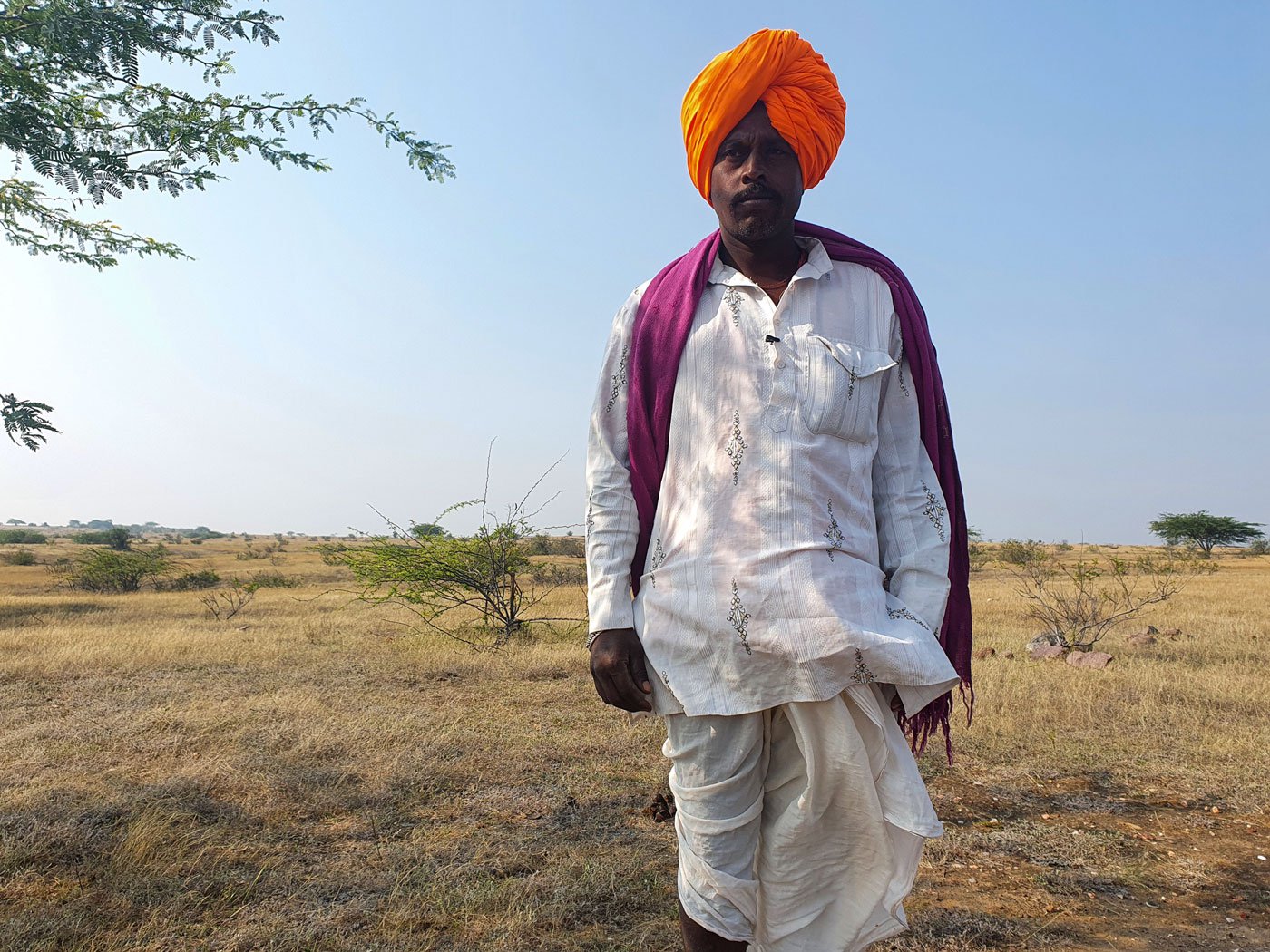
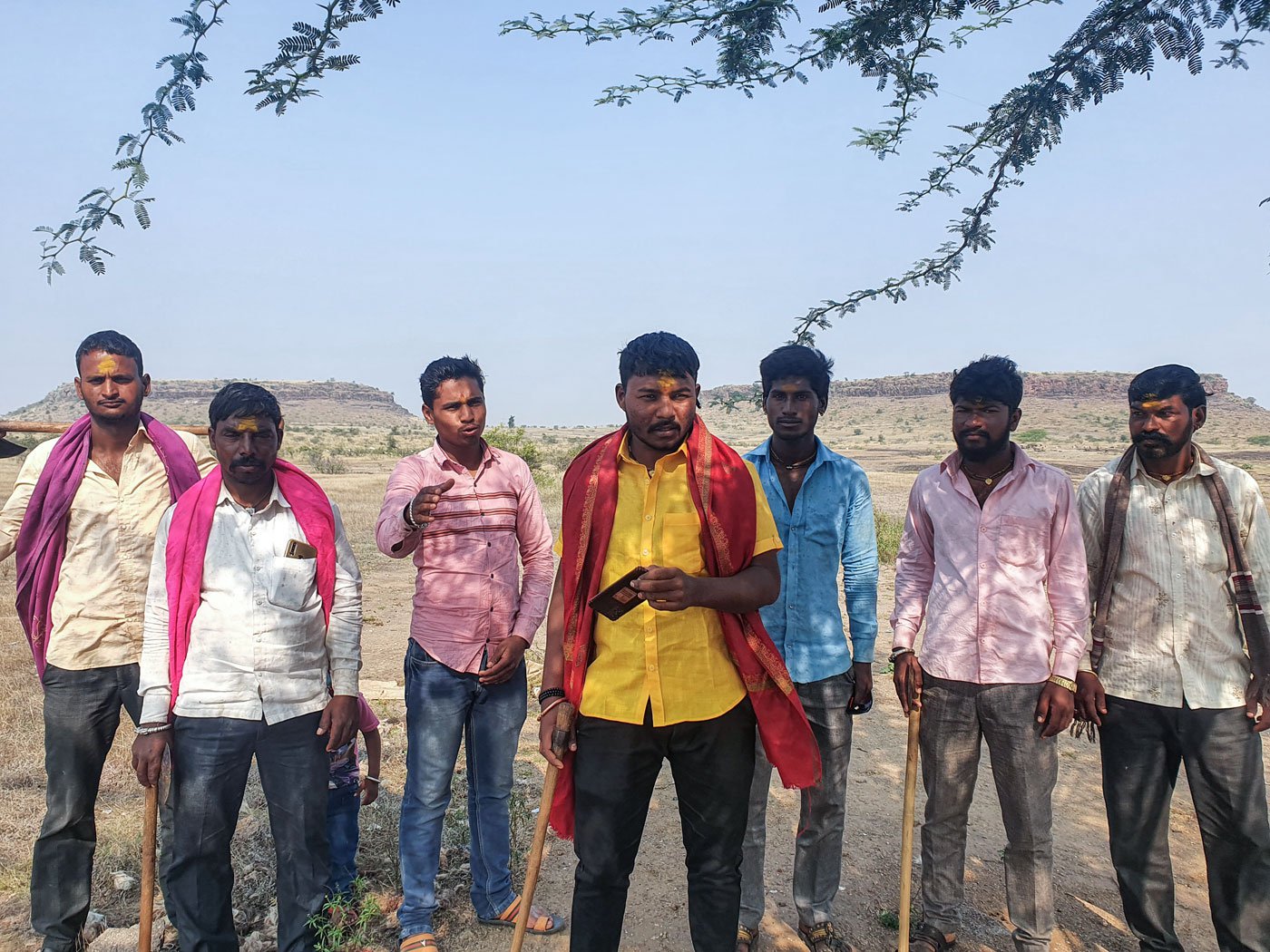
Left: Tukaram Kokare lost nine full-grown sheep and four lambs from his herd of 90. He says, 'It was a huge loss.' Right: Shambhuraje Shendge Patil (in yellow t-shirt) shares that shepherds from the nomadic Dhangar community often face hostility from locals
“We could not even take pictures of the sheep that died. We have phones but they are not charged. We can charge them only when we are in a village or a settlement,” Taibai says.
Taibai and her animals are temporarily housed in a field cordoned off with ropes tied in sheepshank knots. Her flock of sheep and goats are resting and grazing. “We have to walk far to feed our livestock,” she says, pointing to the troop behind.
Gangaram walks from Dhavalpuri to Dehu in Pune district in search of fodder for his sheep. It takes him 15 days to reach the flatlands of Dehu. “We get beaten up if we breach people’s fields [for fodder]. We have no option but to take the beating,” he says. With local goons harassing them, “farmers are our only support,” he says.
“In general, shepherds are a resilient group and are capable of withstanding shocks, but the unexpected rains of December 1 and 2 left them shattered as several sheep died,” says Dr. Nitya Ghotge, a veterinarian.
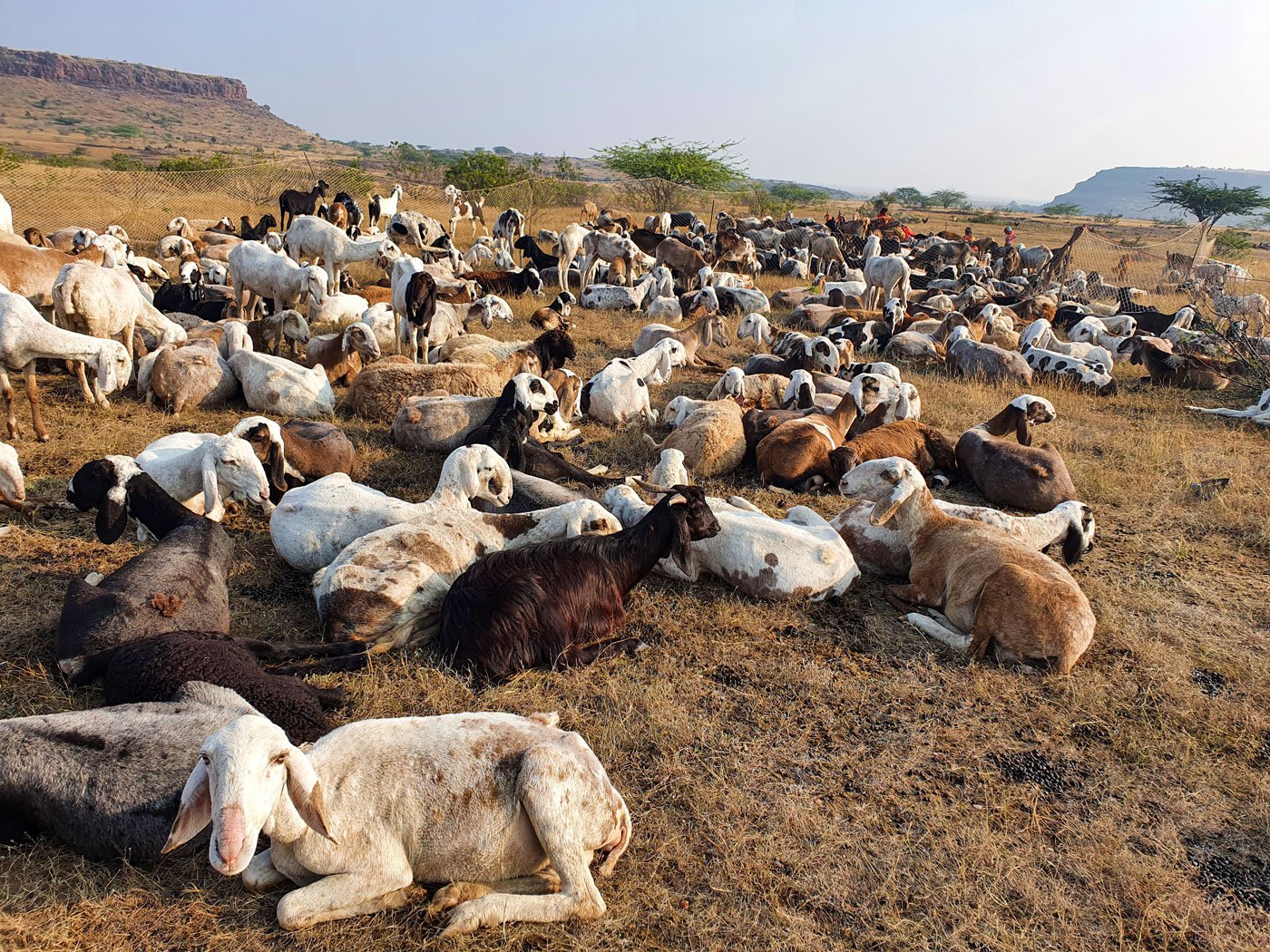
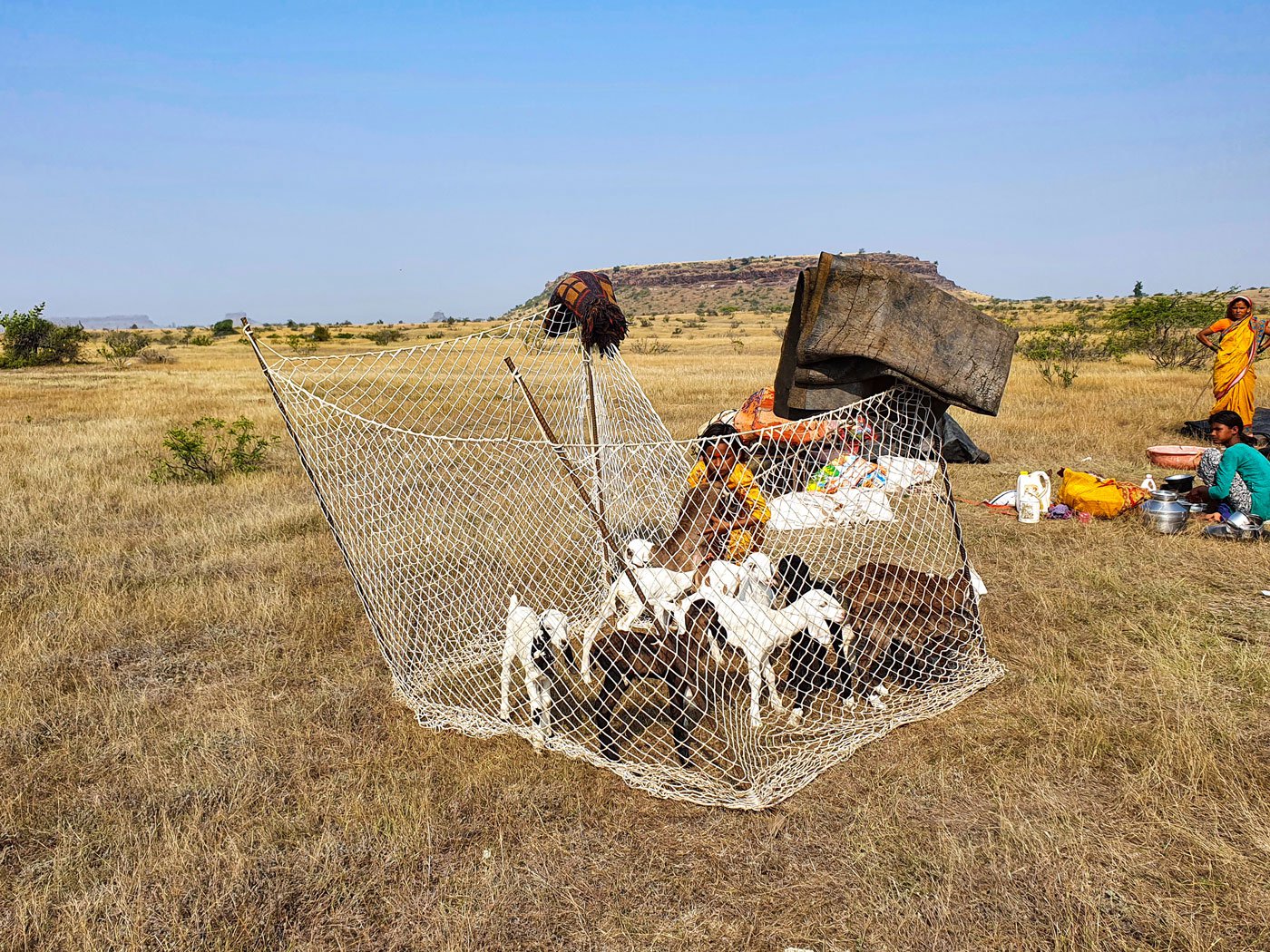
Left: Taibai Ghule's flock of sheep and goats resting after grazing in Bhandgaon. Right: Young kids and lambs are kept in makeshift tents while older animals are allowed to graze in the open
She says shepherds had to deal with multiple stresses of protecting themselves and their families. “Small children, their possessions including food supplies, firewood and mobile phones and their animals, especially weak and young animals,” were all at risk, adds Ghotge who is director of Anthra, a non-governmental organisation (NGO) working with pastoral and farming communities.
Shepherds need critical support in filing panchanamas , receiving information on climate shocks, on disease, vaccines and timely veterinary support. “It is hoped that the government, while drafting its climate change and livestock policies, takes account of this," Ghotge says.
Tukaram suggests building a common shed in Dhavalpuri can help shepherds like him save their animals. “It should be built in such a way that the sheep are dry and safe. They will not feel cold inside,” says the experienced shepherd.
Till then, Taibai, Gangaram and Tukaram continue to walk their flock in search of fodder, water and shelter. They say it is wise to keep moving and not wait for any help or relief, either from the state or from rain.
